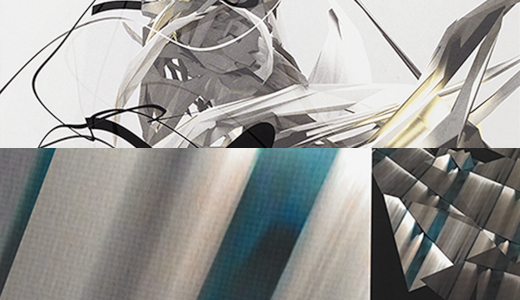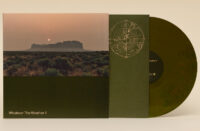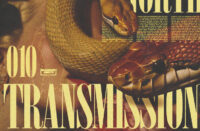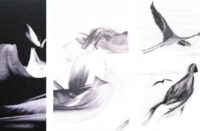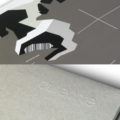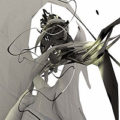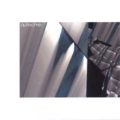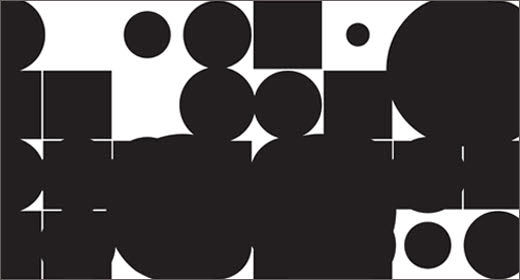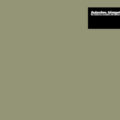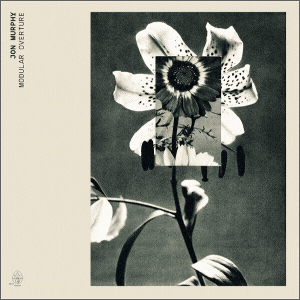One could imagine Autechre’s music as a lumbering, semi-amorphous creature cannibalized and synthesized with parts from electro, hip-hop, industrial, noise, free jazz, and plain old experimental music.
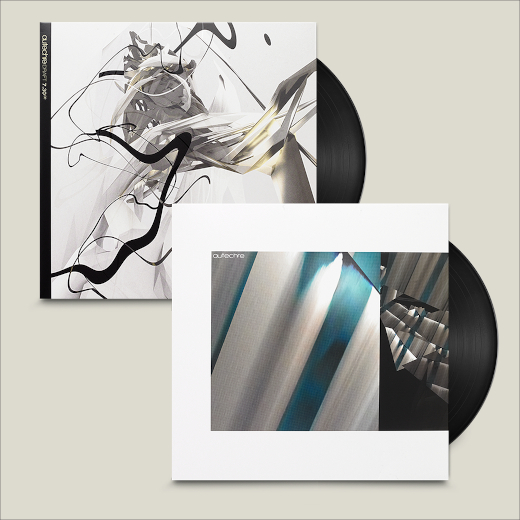
Sparse, stripped down and very different
Autechre (aka Rob Brown and Sean Booth) has become a far different entity than the one first encountered almost thirty years ago. It’s safe to say any of their releases from the 1990’s if released today would be just as fresh and new as they were back then. One could imagine their music as a lumbering, semi-amorphous creature cannibalized and synthesized with parts from electro, hip-hop, industrial, noise, free jazz, and plain old experimental music. Thought they emerged with the rise of post-rave culture IDM acts on the seminal Artificial Intelligence compilations, Autechre soon seemed ill at ease with the docile, smoothed edges of ambient techno and began to venture into unexplored territory.
Borders and delineations between genres were less porous than now, so that few outside of the realm of techno took notice of the state of the art until the end of the 90s. With the more commercially accepted tag of electronica, techno, ambient, IDM, jungle, and rave music—to paint these styles and sounds with a rather broad brush for the sake of argument—more and more listeners and musicians heard the strange sounds emerging from lofts, clubs and basements in their local chain record store. Thom Yorke also called LP5; Autechre’s greatest and a major influence on OK Computer and subsequent Radiohead releases. But as more and more were listening to what Autechre and others had been doing, almost no one was prepared for what they were about to become.
LP5—the predecessor to Confield—was a stark departure previously hinted at on EP7 and Peel Session 2. Where they’d built a name for themselves on lush, evocative songs using synthesizers, samplers and drum machines, Autechre now seemed to be eschewing almost all of these for a few new and powerful machines. The sound was sparse, stripped down and very different from even Chiastic Slide, which in itself, was a major step ahead for the duo. And at the same time, while their most devoted fans thought they could do no wrong, some wondered where the band would go next. So it should come as no surprise that Autechre, ever careful and reluctant to take a step towards the cliched, conventional or expected, released Confield in 2000 and confounded just about everyone.
A spacefaring duo ::
I like to think of Autechre as a spacefaring duo, perhaps owing to a young impression of synthesizers as otherworldly and alien. To continue with this metaphor, it’s almost as if Autechre built Confield in secret; a vessel aimed for not just the heavens, but the dark and unexplored regions of deep space. The album was a major shift away for what the band was know for, and would signal a shift towards the sound they’ve adopted and stuck to for the most part since early 2000.
Confield is a challenging, perplexing and polarizing listen. Some derided it as self-parodying, meandering drivel (which applies better to Draft 7.30, but more on that later) while significantly fewer called it visionary and brilliant. Reviews at the time were quite enthusiastic—but then, who really cares what music journalists have to say (irony fully-intended.) Confield alienated many fans who wanted Autechre to rehash Amber and Tri-Repetae (or Incunabula‘s downtempo jam “Bike”). It’s a cold, metallic, percussive and rhythmic album; where once there was lush melodies and dreamy synthesizers these became few and far between, making rare appearances like a loser relative’s face in a crowd. In this year of 2023, when talking about Autechre, the year 2000 and Confield are seen as a major dividing line where a large number of fans gave up on the boys from Rochdale and started listening to LCD Soundsystem.
It’s not hard to see why Confield is such a polarizing album. I’m very open about the fact that I didn’t really appreciate it until almost 20 years later. I was (for a very long time) firmly in the camp of 90s-era Ae, while also buying every new release of theirs I could. It eluded me for a long time with its apparent lack of cohesive structure, focus on generative, randomized decision making MAX MSP instruments (Google Sean Booth on generative music to hear more about why he hates the term) that didn’t go to the usual places Autechre’s music did in previous releases, and for that I wasn’t as enthusiastic about Confield as I was Tri-Repetae.
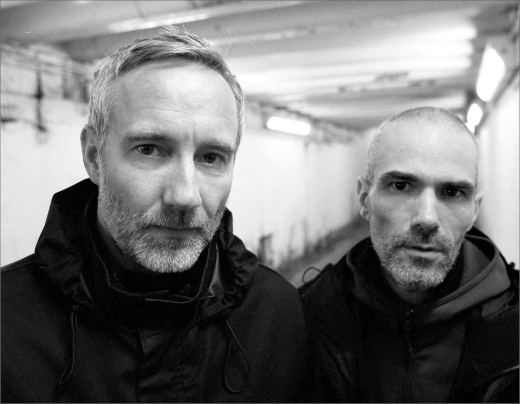
As pure an expression of artistic freedom ::
Over time, however, I’ve come to love Confield for the fact that it’s as pure an expression of artistic freedom as one can get in modern electronic music, while at the same time, is a challenge to their hordes of adoring fans. The album is an hour and thirteen minutes of demanding the listener to fish or cut bait.
Personally, I’m glad I stuck with it and kept going back to it because it’s a rather astounding document of perhaps the most experimental group in electronic music launching themselves into the void to venture far beyond their peers. With respect to the giants, Autechre have gone places Aphex Twin and μ-Ziq could never and will never go solely because of their willingness to go beyond the bounds of electronica, IDM, or whatever you want to call this post-rave music.
“VI Scose Poise” (from Confield) is a slow burning first track; sounding like some sort of duel between a percussionist, a selection of small metallic instruments, and a broken CD player. Marimba-like tones descend like wafting drops of ectoplasm onto the surface of an ever-rippling pond. “Cfern” lopes along like an old hound bumping into things as it makes its way down the road at dusk past the old factory. “Pen Expers” is my personal favorite next to the opening track—pure Autechre with the mangled and warped sample, melancholic synths and eventual decay into oblivion their tracks often follow. “Sim Gishel” sounds like your mother’s modem downloaded a malevolent self-aware AI with an incredible sense of rhythm and timing where granular synthesis takes apart the most minuscule elements and stretches them out across time.
“Parhelic Triangle” is the fever dream of a cardboard folding machine as it breaks apart, setting off alarms in the giant cavernous warehouse it’s imprisoned in. “Bine” is positively manic, apocalyptic beats driven to the edge of cognition, thundering and thumping into the darkness. “Eidetic Casein” is almost jolly, like a stroll down a malign carnival midway where sound and sight warp and waft into atonal whimpers. “Uviol” is an exercise in machine meditation, where electric piano tines plink out in the gloom of a temple where candles flicker and shadows define and refine the shapes therein. “Lentic Catachresis” is a slog through silicon muck and mire, machines filing and scratching away as you pass until nothing remains but thudding static sludge pulling you down under the surface.
“Mcr Quarter” was a hidden track on Confield, a live cut from 1998 that is now a clear signpost for most future Autechre releases with the relentless drums and endless sampling, resampling and slices of the clashing percussion. In its wake, Confield left many long-time Autechre fans perplexed, wondering if it was a one-off. The hope for many was that in time they’d return to their roots and what fans wanted. 2002’s Gantz Graf put the nail in the coffin of their love of Autechre for many while newer fans loved the bonkers, thundering drums and relentless manipulation of beats and sounds within. It seemed to be a clear sign that Autechre wasn’t going back to the old days ever again. Or was it?
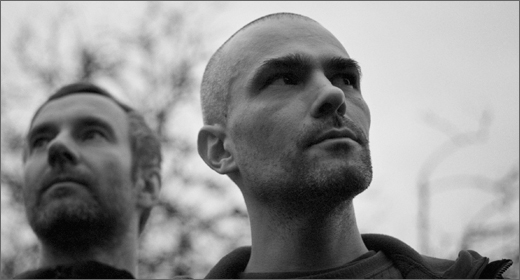
A very misunderstood and maligned album ::
Draft 7.30 was seen by many as a last hope, the follow-up to a very misunderstood and maligned album by beloved artists. I myself was very excited to hear it, hoping for that very thing. Which is why so many fans were puzzled and disappointed when they finally heard it. To put it bluntly Draft 7.30 is okay; it covers no new ground, nor is it a rehash of previous hits. It draws less from the experimentalism that Confield did while incorporating their solid mastery of beats and rhythm—while not quite taking the listener anywhere new which has been the expectation of every album of Autechre’s since Amber.
It’s not hard to see why, frankly. For many of the tracks on Draft 7.30 have certain elements that are pushed to the background, overpowered by the emphasis placed on rhythmic and percussive elements. The album suffers from almost too much manipulation where beats rarely have the freedom to set a solid groove and themes aren’t given the room to fully develop in favor of regularly introducing new elements or diversions.
“Xylin Room” doesn’t begin until about twenty seconds in where the main beat thuds, thumps and clunks along under a squelching 303-like bass as metallic tones clash and clatter together. “IV VV IV VV VIII” starts and staggers between a beatbox workout and sample manipulation over soundscapes. “6IE.CR” is a solid electro banger, an android slo-jam for the end of days. “TAPR” sounds like what happens when you throw a supercomputer and a drum machine into a tarpit and records their wails as they sink below the oily dark. “Surripere” is a masterpiece, where the first four minutes or so is a slow roll with a simple unaffected beat, wafting and swelling synths and little to no overt and/or excessive manipulation; the song devolves and transforms in time while never quite losing the root form and function. “Theme of Sudden Roundabout” is another rambler; drums following their own rhythm while tones warble and wobble in and out of hearing. “VL AL 5” allows for some more space around the drums, where the sounds get to play a bit more and keep their focus. “P.:NTIL” is a haughty little number, the beat light and peppy, the synths squeaky and steady. Despite being very loud, obnoxiously metallic and atonal, “V-Proc” is one of the album’s more satisfying tracks where the development is unimpeded, allowing the sounds themselves to do the work of exploration and evolving. “Reniform Puls” closes the album out in classic Autechre fashion with a slow decay into randomized clutter and chaos.
In hindsight, Draft 7.30 might appear to be a misstep and the sophomore slump of a group in what I’d call their second phase which began with Confield. They’d been working with MAX MSP for a few years by then, and certainly had a handle on it, if not an outright mastery. Those hopes of a return to ambient Autechre were firmly dashed with 2005’s Untilted which went further in the direction of percussive hyper-programmed tracks than ever before. That they’ve never looked back since Draft 7.30 is perhaps the biggest indicator of their uncompromising approach to moving their music and art ever forward at the expense of fan’s and critic’s expectations. Their music has only gotten more and more complex and abstract, all while never showing any obvious influences or adherence to styles. Autechre’s music now bears as little resemblance to its roots as does a tree to its seed, or a bird to its egg.
Confield and Draft 7.30 are available on Warp. [Site]






